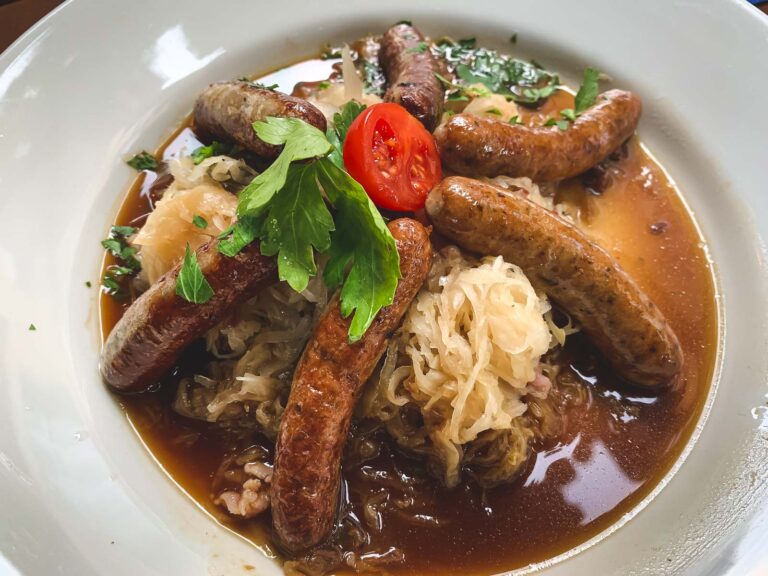Introduction: Exploring the World of German Cheeses
When we think of German cuisine, sausages, beer, and pretzels immediately come to mind. However, Germany has an extensive cheese-making history, dating back to the Roman era. It is no surprise that Germany produces some of the world’s finest cheeses, with more than 1,300 varieties. German cheeses are known for their distinct flavors, textures, and aromas, making them a popular choice for cheese enthusiasts worldwide.
A Brief Overview of Traditional German Cheeses
The most popular German cheeses are undoubtedly Gouda, Emmental, and Limburger, which are widely available worldwide. Gouda is a semi-hard cheese with a mild, nutty flavor and a creamy texture. Emmental is a nutty, slightly sweet cheese with large holes, and Limburger is a strong-smelling cheese with a pungent, spicy flavor. Other traditional German cheeses include Tilsit, a semi-hard cheese with a tangy flavor; Harzer, a pungent, sour cheese; and Bergkäse, a semi-hard cheese with a distinctive earthy flavor and aroma.
Uncovering Lesser-Known German Cheese Varieties
While traditional German cheeses are widely available, Germany has several lesser-known cheese varieties. One such cheese is Edelpilz, a blue cheese with a creamy texture and a sharp, tangy flavor. Another lesser-known cheese is Handkäse, a sour milk cheese with a crumbly texture and a tangy, slightly bitter flavor. Another unique cheese is Schabziger, a green Swiss cheese made with blue fenugreek seeds that give it a distinctive taste and aroma.
The Unique Flavor Profiles of German Cheeses
German cheeses are known for their unique flavor profiles, which can be attributed to the country’s distinct climate, geography, and cheese-making techniques. German cheeses have a tangy, nutty, or earthy flavor and a distinctive aroma that is a result of aging and fermentation. The texture of German cheeses varies from soft, creamy, and gooey to crumbly and firm, depending on the type of cheese and the aging process.
Pairing German Cheeses with Wines and Beers
When pairing German cheeses with wines, Riesling and Pinot Noir are popular choices. Riesling, with its acidity and sweetness, pairs perfectly with mild, creamy cheeses such as Gouda and Camembert. Pinot Noir’s earthy notes and acidity make it an excellent match for stronger cheeses such as Limburger and Bergkäse. When pairing German cheeses with beer, try pairing lighter beers with milder cheeses and stronger, more robust beers with stronger cheeses.
Conclusion: Discovering the Hidden Gems of German Cheese
Germany’s cheese-making history goes back centuries, and today, the country produces a wide range of unique and delicious cheeses. From traditional favorites like Gouda and Emmental to lesser-known cheeses like Schabziger and Handkäse, German cheeses offer something for every palate. Pairing German cheeses with wines and beers can elevate the flavors and make for a delightful culinary experience. So, explore the world of German cheeses and discover the hidden gems that this cheese-rich country has to offer.

